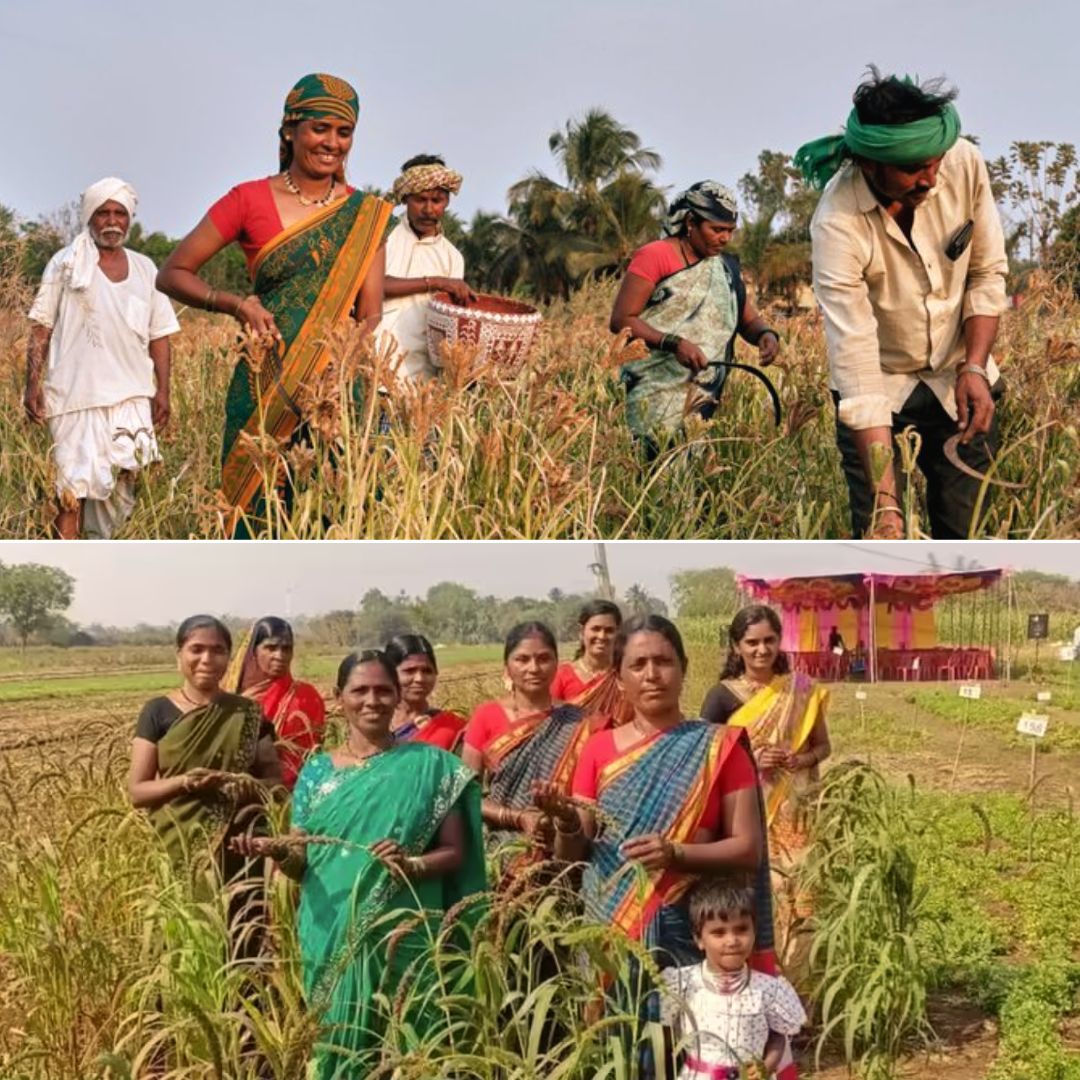The Bibi Fatima Women’s Self-Help Group (SHG) from Teertha village in Karnataka’s Dharwad district recently won the prestigious United Nations Development Programme (UNDP) Equator Initiative Award 2025. Often described as the “Nobel Prize for Biodiversity Conservation,” the award recognises outstanding community-led, nature-based solutions for sustainable development and climate resilience.
Selected from over 700 nominations across 103 countries, Bibi Fatima SHG stood out for their pioneering work in millet revival, eco-friendly farming, community seed banking, and women-led rural entrepreneurship. This global honour not only carries a USD 10,000 prize but also elevates the group to international recognition among ten winners worldwide, representing countries like Argentina, Brazil, Indonesia, and Kenya.
Reviving Tradition for Sustainability
At the core of the Bibi Fatima SHG’s work is revitalising ancient millet-based mixed cropping systems in rainfed, drought-prone lands. Millets, highly nutritious, drought-resistant grains native to India, had been sidelined in favour of commercial crops, contributing to soil degradation and nutritional challenges.
Through natural, chemical-free farming methods, the group has restored biodiversity and bolstered food security across approximately 30 villages. They manage community seed banks preserving over 300 varieties of indigenous seeds, including finger millet, little millet, and foxtail millet.
These banks distribute seeds free to farmers, ensuring resilience against climate stress and promoting sustainable agriculture that honours traditional knowledge and local ecosystems.
Creating Economic Opportunities through Value Addition
Recognising that cultivation alone was insufficient, the SHG ventured into processing and marketing millet products. They established a solar-powered processing unit to produce millets in consumer-friendly forms, including ragi dosa mix, multigrain atta, special malt, and vermicelli. This initiative, run entirely by women, enhances rural livelihoods and opens new income streams.
The group also innovates with herbal products like soaps incorporating locally sourced papaya, neem, turmeric, and aloe vera. Participation in regional fairs and markets like the Hampi Utsav spreads awareness and demand, creating a replicable model of women-led agribusiness that integrates tradition with entrepreneurship.
Collaborative Networks and Community Leadership
Bibi Fatima SHG’s impact is amplified by partnerships with notable organisations such as Selco Foundation, Indian Institute of Millets Research, CROPS4HD, and Devadhanya Farmer Producer Company, which support technical innovation, energy solutions, and market linkages.
Since its inception in 2018 by 15 women members, the collective has expanded to 40 SHGs across Kundgol and Shiggaon taluks, directly benefiting over 5,000 farmers. The SHG’s leader, Bibi Fatima, combines education and grassroots activism as Panchayat secretary, exemplifying the power of women’s leadership in driving sustainable rural development rooted in empathy, dialogue, and shared responsibility.
The Logical Indian’s Perspective
The Logical Indian deeply admires the Bibi Fatima Women’s Self-Help Group for demonstrating how grassroots women-led initiatives can drive profound environmental and social change through empathy, community cooperation, and reverence for nature.
Their work exemplifies the values of kindness, dialogue, and collective empowerment, proving that sustainable development is most impactful when rooted in local culture and driven by those who live close to the land. Recognising such organisations is vital to inspire similar efforts across India and the world, showing that climate action and social progress can be achieved hand in hand.










